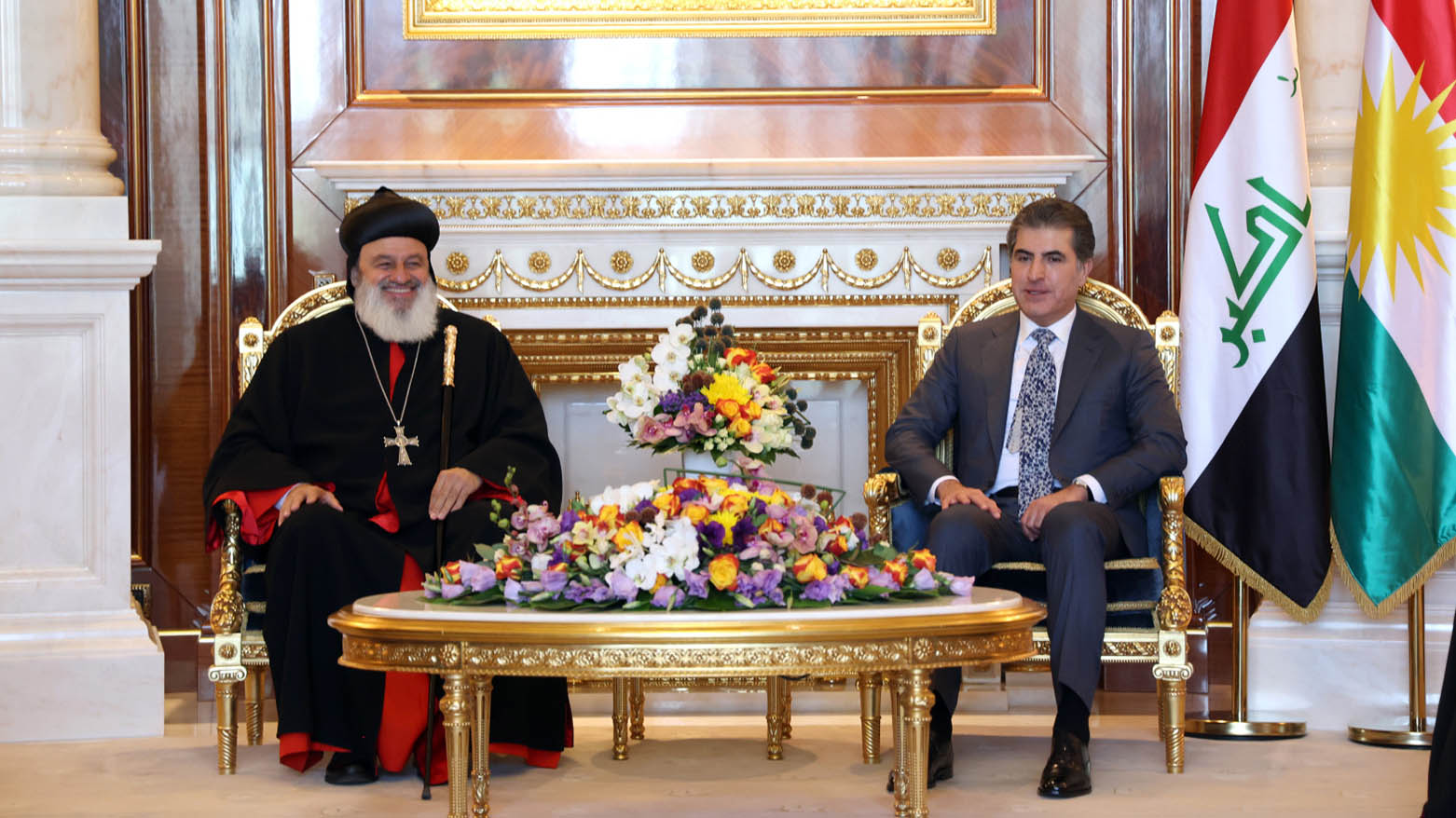Kurdistan Region President Reaffirms Kurdistan’s Commitment to Coexistence in Meeting with Syriac Orthodox Patriarch
President Barzani reaffirmed that “Kurdistan is a homeland for all, without distinction,” and voiced pride in the region’s culture of coexistence and tolerance.

ERBIL (Kurdistan24) — Kurdistan Region President Nechirvan Barzani on Thursday received His Holiness Patriarch Mor Ignatius Aphrem II, Patriarch of the Syriac Orthodox Church, along with a high-ranking delegation of bishops, priests, and clergy from around the world, according to a statement from Kurdistan Region Presidency.
The delegation briefed President Barzani on the purpose of their visit to the Kurdistan Region, which included the inauguration of two new churches — one in Erbil and another in Duhok — marking a significant milestone for the Christian community in the region.
Read More: ‘Kurdistan Will Always Stand for Religious Freedom,’ Barzani Says at Cathedral Opening
His Holiness and the accompanying clerics expressed their deepest gratitude to President Barzani and the Kurdistan Regional Government (KRG) for their continued support to Christians, particularly during times of hardship and displacement caused by conflict. They praised the Kurdistan Region’s longstanding reputation for religious freedom and peaceful coexistence among its diverse communities.
President Barzani reaffirmed that “Kurdistan is a homeland for all, without distinction,” and voiced pride in the region’s culture of coexistence and tolerance. He stressed that the Kurdistan Region remains committed to safeguarding and promoting a pluralistic society where all faiths and ethnic groups enjoy equal rights and responsibilities.
Discussions during the meeting also touched upon the broader situation of the Syriac Orthodox Church and its followers in the Kurdistan Region, Iraq, and the wider region.
The visit and church inaugurations underscore the Kurdistan Region’s role as a sanctuary for religious diversity and a beacon of peace and tolerance in the Middle East.
Read More: From Umm al-Nour Cathedral to Al-Azhar Institute: KRG Puts Coexistence Into Practice